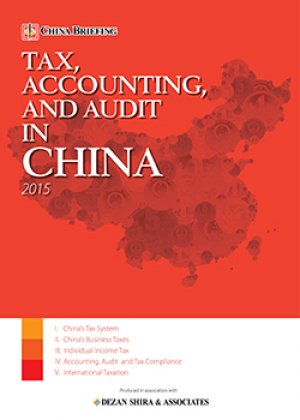China Regulatory Brief: Simplified Company Name Pre-approval Rules, 2015 Hangzhou Minimum Wage Levels
China to Implement Simplified Company Name Pre-approval Rules
On October 15, the Administration for Industry and Commerce (AIC) released an announcement which allows companies to complete name pre-approval procedure online starting November 1, 2015. Newly-established companies may submit an application for name pre-approval online via the AIC company registration system and upload photocopies of required documents. After approval, companies can get a “company name pre-approval certificate” at the local AIC office and finish the company registration. Furthermore, the procedure for changing the name of a company has been simplified as well. A company’s name approval is the first step in establishing a company in China. Previously, companies were required to go to the State AIC bureau and submit the materials in person.
Stricter Requirements for Hong Kong Residents to Claim Tax Treaty Benefits
China’s State Administration of Taxation (SAT) recently issued Announcement 60, which states that self-assessment procedures will be imposed on a non-resident person claiming benefits provided under a comprehensive income tax treaty with mainland China. Specifically, all Hong Kong applicants will be required to obtain a certificate of residence (CoR) issued by Hong Kong’s Inland Revenue Department (IRD). This means the IRD will be involved and take charge of examining an applicant’s Hong Kong residency status. Meanwhile, both the IRD and SAT shall examine whether the applicant is the beneficial owner of the income and whether the applicant is abusing the terms of the tax treaty. The new procedures will become effective for applications made on or after 1 November 2015.
![]() RELATED: Business Advisory Services from Dezan Shira & Associates
RELATED: Business Advisory Services from Dezan Shira & Associates
China and Singapore to Strengthen Bilateral Relations
China’s Vice-Premier Zhang Gaoli made a three-day visit to Singapore from October 12 to 14 to promote bilateral ties between China and the Southeast Asian nation. During the visit, Zhang and Singaporean Deputy Prime Minister Teo Chee Hean co-chaired the 17th China-Singapore Joint Steering Council Meeting for the Suzhou Industrial Park and the eighth China-Singapore Joint Steering Council Meeting for the Tianjin Eco-city. The two sides made a commitment to speed up the negotiations of a third intergovernmental project in West China and are hoping to launch the construction as soon as possible.
Besides this, China and Singapore have also agreed to deepen cooperation in areas such as trade, finance, tourism, science and technology, education, environmental protection and human resources. China was Singapore’s largest trading partner in 2014, with bilateral trade (in goods) of US$121.5 billion, up 5.4 percent from the previous year.
Hangzhou Adjusts its Minimum Wage Levels for 2015
On October 13, the Hangzhou Government released its monthly and hourly minimum wage levels for 2015, which will take effect on November 1, 2015. Accordingly, the monthly minimum wage in Hangzhou will be adjusted to RMB 1860 from RMB 1650 (12.7 percent growth), while the hourly minimum wage will be adjusted to RMB 17—both are the highest in Zhejiang province.
|
Asia Briefing Ltd. is a subsidiary of Dezan Shira & Associates. Dezan Shira is a specialist foreign direct investment practice, providing corporate establishment, business advisory, tax advisory and compliance, accounting, payroll, due diligence and financial review services to multinationals investing in China, Hong Kong, India, Vietnam, Singapore and the rest of ASEAN. For further information, please email china@dezshira.com or visit www.dezshira.com. Stay up to date with the latest business and investment trends in Asia by subscribing to our complimentary update service featuring news, commentary and regulatory insight. |
![]()
 Tax, Accounting, and Audit in China 2015
Tax, Accounting, and Audit in China 2015
This edition of Tax, Accounting, and Audit in China, updated for 2015, offers a comprehensive overview of the major taxes foreign investors are likely to encounter when establishing or operating a business in China, as well as other tax-relevant obligations. This concise, detailed, yet pragmatic guide is ideal for CFOs, compliance officers and heads of accounting who must navigate the complex tax and accounting landscape in China in order to effectively manage and strategically plan their China operations.
Using China’s Free Trade & Double Tax Agreements
In this issue of China Briefing, we examine the role of Free Trade Agreements and the various regional blocs that China is either a member of or considering becoming so, as well as how these can be of significance to your China business. We also examine the role of Double Tax Treaties, provide a list of active agreements, and explain how to obtain the tax minimization benefits on offer.
 Human Resources and Payroll in China 2015
Human Resources and Payroll in China 2015
This edition of Human Resources and Payroll in China, updated for 2015, provides a firm understanding of China’s laws and regulations related to human resources and payroll management – essential information for foreign investors looking to establish or already running a foreign-invested entity in China, local managers, and HR professionals needing to explain complex points of China’s labor policies.
- Previous Article The Third Road to China: Foreign-invested Partnerships
- Next Article China Regulatory Brief: Financial Reform in the Shanghai FTZ, Upcoming 13th Five-Year Plan











